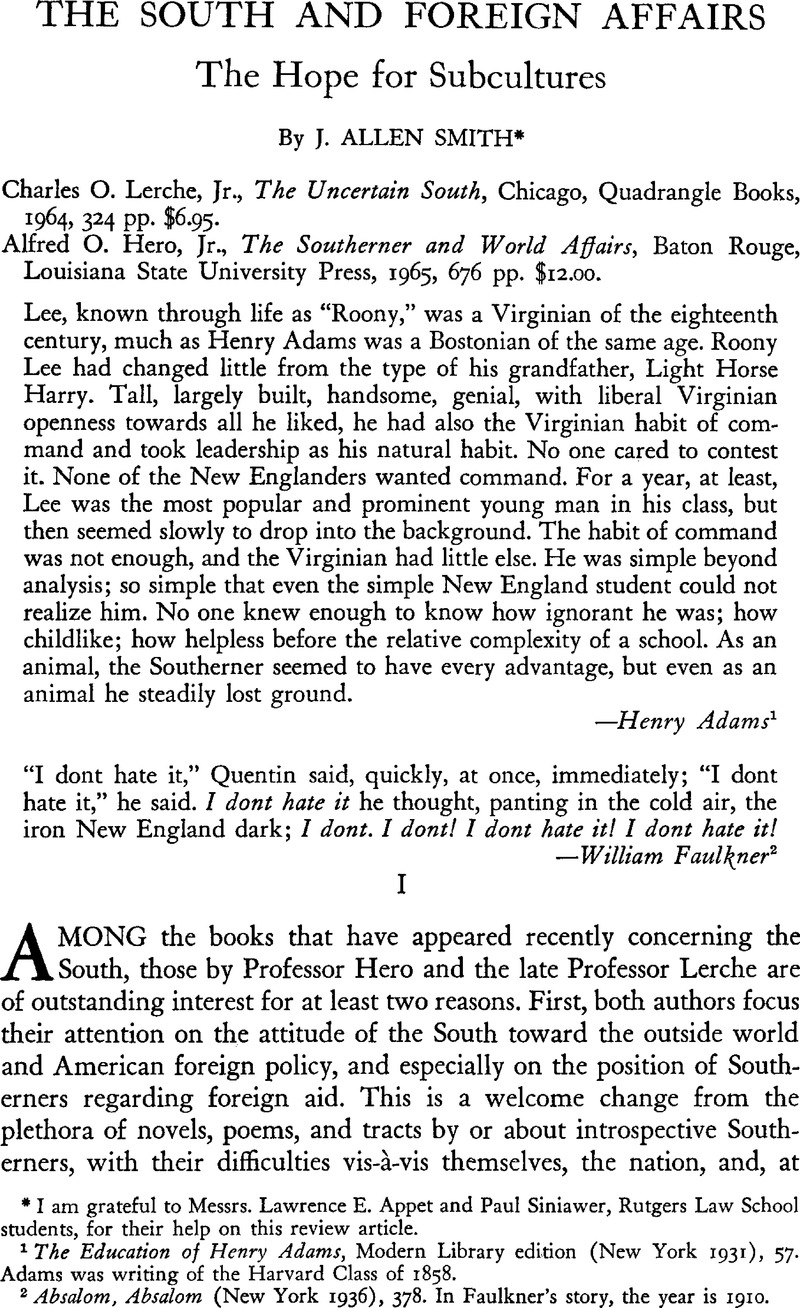No CrossRef data available.
Published online by Cambridge University Press: 18 July 2011

1 The Education of Henry Adams, Library, Modern edition (New York 1931), 57. Adams was writing of the Harvard Class of 1858.Google Scholar
2 Absalom, Absalom (New York 1936), 378Google Scholar. In Faulkner's story, the year is 1910.
3 Odum, Howard W., An American Epoch (New York 1930), 25.Google Scholar
4 Ibid., 19.
5 Francis Butler Simkins, A History of the South (New York 1953), 3, ix.Google Scholar
6 Cash, W. J., The Mind of the South (New York 1961), 65–66.Google Scholar
7 Ibid., viii.
8 The Burden of Southern History (Baton Rouge 1960), 4–5.Google Scholar
9 “The Impending Crisis of the Deep South,” Harper's (April 1965), 147Google Scholar.
10 Dictionary of American Biography, xx (New York 1936), 278.Google Scholar
11 369 U.S. 186 (1962).
12 It is rather odd that commentators on the South give so little treatment to these two churches. Of interest is the fact that President Johnson is a member of the Disciples of Christ, as was Lloyd George, who also led a war on poverty in 1911. See Dictionary of National Biography, 1941–1950, 515, 518.
13 White and Black: Test of a Nation (New York 1954), 154.Google Scholar
14 For the argument that there are at least six Southern universities-Texas, Tulane, Vanderbilt, Duke, North Carolina, and Virginia-that can rank with the best in the North, see Dabney, Virginius, “The Good Southern Universities,” Harper's (March 1965), 86Google Scholar.
15 Osterweis, Rollin G., Romanticism and Nationalism in the Old South (New Haven 1949), 46–47Google Scholar. This author points out that Southerners once put great stress on three words borrowed from Sir Walter Scott: chivalrous, Southron, and aristocratical.
16 Dabbs, James McBride, Who Speaks for the South (New York 1964), 91.Google Scholar
17 An American Epoch, 321.
18 Amerika, du hast es besser
Als unser Kontinent, das alte,
Hast keine verfallene Schlosser
Und keine Basalte.—Goethe, “America”
19 Auden, W. H., “In Praise of Limestone,” Nones (New York 1951), 13–16.Google Scholar